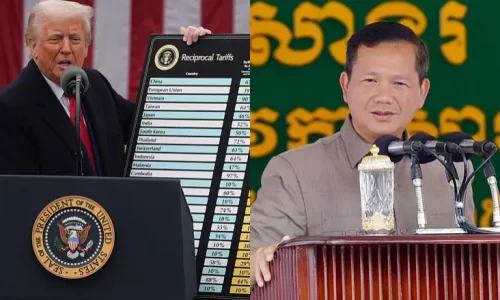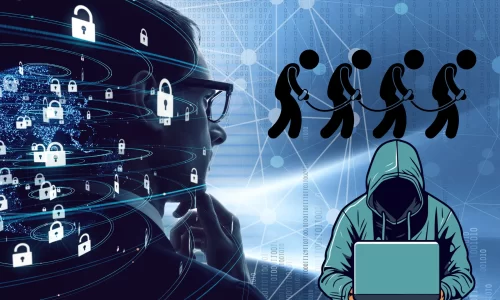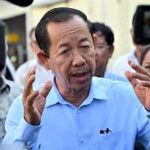Foreign affairs: How does the EU engage critically with Cambodia?
- admin
- 0 Comments
Thursday 8 May 2025
Exiled Cambodian human rights activist Mu Sochua visited last week Brussels and met MEPs and EU officials to discuss the democratic backsliding in her home country following the elections in 2023.
Mu Sochua, a Nobel Peace Prize nominee, a former Cambodian parliamentarian and president of the Khmer Movement for Democracy, sent a letter to Kaja Kallas, EU’s High Representative for Foreign Affairs and Security Policy, expressing her concerns about “the descent of Cambodia into an entrenched autocracy under the regime of Hun Manet”.
Hun Manet succeeded his father, Hun Sen, a former Khmer Rouge commander, who had been in power since 1985. Since the elections in 2023, the government has been cracking down on free speech, jailing activists, forcing opposition politicians into exile, using violence and intimidation to silence its critics, and committing grave human rights abuses against its citizens, according to Mu Sochua’s letter.
According to the European External Action Service (EEAS), the EU has been a major development partner of Cambodia since the early 1990s. Cambodia, as a Least Developed Country, benefits from duty-free and quota-free access to the EU for all products, except arms under the “Everything But Arms” (EBA) scheme as part of the “Generalised Scheme of Preferences” (GSP).
The granting of EU trade preferences is subject to the respect of human rights and fundamental freedoms. In 2020, the European Commission decided to suspend part of the tariff preferences granted to Cambodia under the EBA scheme due to serious and systematic violations of the human rights principles.
Since then, the situation in Cambodia has deteriorated according to Mu Sochua’s letter to Kallas. She calls on the EU to implement further sanctions against the regime, such as visa sanctions and assets freeze, following a resolution in the European Parliament in November 2024 on “the shrinking place for civil society in Cambodia”.
Asked by her meetings in Brussels, Mu Sochua replied that they “revealed a shared overarching goal: supporting Cambodia’s development as a free and democratic nation”. However, a clear divergence in approach exists, she added.
The EEAS, while acknowledging frustration over Cambodia’s non-compliance with international legal obligations, including those under the EBA, adopts a more diplomatic stance focused on dialogue with the Cambodian authorities. The European Parliament demonstrates a greater sense of urgency and resolve over the breaches of international obligations by Cambodian authorities.
She is aware of that the options for action by the Commission and the Council are constrained by the EU’s institutional framework, particularly the need for consensus among member states for sanctions and trade preference adjustments.
Nevertheless, there is a common understanding that any action taken is a direct consequence of the Phnom Penh regime’s non-compliance. She referred to the assassination in January 2025 in Bangkok of former parliamentarian Lim Kimya from the banned opposition party (CNRP). He was also a French and EU national and his death might be a turning point in the relations with the EU.
What was the EU’s reaction to the elections in 2023? Were they recognised as free and fair? Were election observers allowed to monitor the elections?
“The EU has unequivocally stated that these elections did not meet Cambodian constitutional requirements for a pluralistic, multi-party democratic system, nor did they adhere to Cambodia’s international obligations,” she replied. “It also stated that it did not consider the 2023 elections to be free or fair.”
A key indicator of the EU’s stance was its refusal to deploy an election observation mission, she added. This decision stemmed from the pre-existing assessment that the electoral process would lack both freedom and fairness, rendering an observation mission ineffective.
The EU describes its diplomatic approach to authoritarian countries that suppress human rights as “critical engagement” – not closing all relations with them but keeping channels open. Does it work with Cambodia?
“The effectiveness of the EU’s ‘critical engagement’ approach with Cambodia is debatable, and the results so far offer limited optimism. While the EU maintains dialogue with the Cambodian authorities, civil society, and even political prisoners, the human rights situation and democratic space in Cambodia have demonstrably deteriorated, as evidenced by numerous international reports.”
The increasing influence of external actors, particularly China, and the introduction of new surveillance technologies further complicate the situation and present additional challenges to the EU’s approach, she explained.
That said, the believes that human rights dialogue remains the only viable avenue for the EU to voice its concerns, monitor the situation, and advocate for improvements in Cambodia. “The EU’s continued participation in dialogue, including observing politically motivated trials and engaging with civil society, demonstrates its commitment to this approach, however challenging.”
Unlike some other international partners which have cut their assistance, the EU increased the support for civil society at the end of last year.
“Ceasing engagement entirely would likely be counterproductive, potentially isolating Cambodia further and removing any remaining channels for communication and influence. The dialogue serves as a crucial platform to consistently remind the Cambodian authorities of their international obligations and to signal the EU’s unwavering commitment to human rights and democratic values.”
If the EU would step up its measures against Cambodia, could that play into the hands of China? What is Cambodia’s position on Russia’s war of aggression against Ukraine?
“Over the past decade, Cambodia has increasingly aligned itself with China, exhibiting characteristics of a vassal state,” Mu Sochua replied and referred to a surge of cybercrime (estimated by the UN at 50% of Cambodia’s GDP). She prefers Cambodia doing business with the EU, which alongside the US is the greatest market for Cambodian goods.
“Regarding Cambodia’s position on Russia’s war of aggression against Ukraine, we have seen a shift of the approach of the rulers in Hun Sen drifting away from international law. The absence of Cambodian government representatives at the Geneva Peace Conference was notable and was certainly noted in Brussels and across Europe.”
Last but not the least, should tourists continue to visit Cambodia?
“Cambodia possesses breathtaking beauty, from the awe-inspiring Angkor Wat and other ancient temples – testaments to the genius of the Khmer people – to its stunning landscapes and the genuine warmth of its people. These treasures are indeed a privilege to witness and share with the world. I wholeheartedly recommend experiencing my motherland firsthand.”
However, she added a caveat. “Please be aware of the complexities on the ground. Heed your government’s travel advisories regarding crime and be mindful of the broader human rights situation. When you visit, choose to support local, ethical businesses to ensure your tourism truly benefits the Cambodian people.”
“Engage respectfully with locals, perhaps sharing your experiences of democracy and freedom with sensitivity. A visit to Cambodia can be an unforgettable experience, and, by traveling responsibly, you can appreciate its wonders while being a mindful and supportive visitor.”
The European Commission did not reply in time to a request from The Brussels Times for comment on the EU-Cambodia relations.
Related Posts

Cambodia’s Tariff Crisis: A Wake-Up Call for Reform
- admin
- May 1, 2025
By Mu Sochua Geopolitical Mirror 01 May 2025 Last week, China President Xi Jinping visited a s ..

Cyber-slavery Prevention Efforts Won’t Be Enough While Complicit Cambodian Regime Remains
- admin
- November 20, 2024
The international community is at last starting to show greater understanding of the threat pos ..

